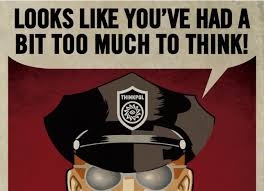Welcome home! Please contact lincoln@icrontic.com if you have any difficulty logging in or using the site. New registrations must be manually approved which may take several days. Can't log in? Try clearing your browser's cookies.
Zen.......self-taught or via a Teacher ?
 Alex
UK Veteran
Alex
UK Veteran
Is Zen something that you can learn by yourself (i.e. via reading and meditation), or do you really need a Zen Master to teach you ? Can someone who is very experienced in Zen teach you, even though they may not be a ‘Master’ in the most formal sense of the word ?
I really respond to Zen’s concepts and have a local Sangha that I am now meeting up with, they are naturally very focussed on meditation and not overly technical re anything beyond this, The teacher is someone who learned out in San Francisco from a venerable Zen Master, but is not themselves a ‘Master’. Is this an adequate environment, or do I need to be looking beyond and heading into a major city (a rather long journey) to seek a Master ?
Thank you ?
0

Comments
“Long ago during the T’ang dynasty in China, Great Master Jōshū Shinsai (Zhàozhōu Cōngshěn), upon giving rise to the intention to seek the Way, set out on a pilgrimage of Zen monasteries, saying at the time, “Even though it be someone seven years old, if he or she is spiritually my superior, I will ask that person to instruct me. Even though it be someone a hundred years old, if he or she is spiritually less advanced than I, I will give him or her instruction.” This old arhat* was bound to bow even when asking for teaching from a seven-year-old! Rare indeed is such an intention, and such was the aim of a Buddha of old.”
From Dogen’s Raihai Tokuzui, ‘Respectful Bowing Will Secure for You the Very Marrow of the Way’
https://www.treeleaf.org
Thank you @Lobster very helpful and insightful. I shall keep this in mind and continue with my learning where I am, for the present anyway ?
alex that's cool zen peak your interest.
maybe hang out with people who enjoy gardening.
I'm sure if you're starting out it will be good. Learning about Buddhism and yourself happens in layers. Maybe after you've been practicing for a few years or so you'll naturally find yourself seeking a teacher with a deeper level of realization.
Often in receiving guidance more is transmitted than just overt instruction, we pick up on and learn from subtle cues from those around us, especially so from those we look to as role models.
Well said.
Behavour was my teacher. I was not interested in supposed teachers only in somone with genuine realization that was way ahead of me. However the capacity to benefit may need experiences that come inititially from being in a more conventional sangha/group/student role.
All most people need initially is a daily discipline, meetings, retreats and regularity ...
https://www.dailyzen.com/zendo/
When the pupil is ready the Master will appear
I would say that in the long run it would depend if one is Karmically inclined....
Some seem to take to Zen 'intuitively' like ducks to water ....Whilst others are somewhat hindered by their intellect, trying to find answers by logic & reason where none can be found....

Teachers come in many shapes and forms...via Books, videos & IRL ...However when ones gets down to the nitty gritty, you are the best teacher you will ever have, but you may need the teachings of another teacher to point this out for you...
From what I gather when one enters the 'Buddhist path' ( any Buddhist school/sect/tradition) we are (whether one realises it or not) all (in a roundabout kinda way) at the same time, both pupils & teachers of Zen...Some more of one than the other....
There are 3 basic traditions of Buddhism: Zen, Vajrayana (Tibetan) and Theravadan.
I have read the pursuing Zen without the guidance of a master/teacher is a waste of time. But since I have no Zen teacher and have not pursued Zen buddhism, I can neither affirm nor negate this.
I have read that pursuing Vajrayana with the guidance of a master/teacher can drive you crazy. I DO practice Vajrayana, but I have a Tibetan monk/geshe living in my city who I take guidance/lessons from. And I prefer to think I am not crazy. But with my degree in psychology, I can see how unstable people could become delusional if they did the Vajrayana practices without guidance to steady them.
As for Theravadan ... THAT is said to be the only branch of Buddhism that is safe and useful to pursue if you have no teacher. Although even here, you progress faster if you have a teacher. There is something very useful, on an unconscious level, from seeing someone who has mastered their practice, as they go about their business.
But regardless of what tradition you pursue, no teacher can make us become enlightened .. they can inspire, guide, teach .. but we are the ones who do our work.
If you have no teacher, I recommend you buy a copy of "Mindfulness in Plain English" by Bhante Gunaratana, a Theravadan Buddhist. The book starts with an excellent explanation of what Buddhism is and isn't, and then goes into how to practice and how to handle obstacles as they arise. I'd look for a copy off of amazon.
A rather long quote from this book, discussing these 3 traditions and how they differ:
“(The author talks about Hindu meditation as a prelude to discussing Buddhist meditation).....
Within the Buddhist tradition, concentration is also highly valued.
But a new element is added and more highly stressed. That element is awareness. All Buddhist meditation aims at the development of awareness, using concentration as a tool. The Buddhist tradition is very wide, however; and there are several diverse routes to this goal.
Zen meditation uses two separate tacks. The first is the direct plunge into awareness by sheer force of will. You sit down and you just sit, meaning that you toss out of your mind everything except pure awareness of sitting. ... The second Zen approach used in the Rinzai school is that of tricking the mind out of conscious thought into pure awareness. This is done by giving the student an unsolvable riddle which he must solve anyway .. since he cannot flee from the pain of this task, he must flee into a pure experience of the moment.
Another stratagem, Tantric Buddhism, is nearly the reverse. Conscious thought, at least the way we usually do it .. is tightly connected with self-concept. By focusing and merging the sense of ego with a metaphorical quality (represented by the “deities”) ... During this process, we are able to observe our ego and how it is constructed and put in place. We come to recognize the arbitrary nature of all egos, including our own, and escapees from bondage to the ego. We are left in a state where we may have an ego if we so choose, or we can do without one. Result: pure awareness.
Vipassana (Theravadan meditation) is a direct and gradual cultivation of awareness. It proceeds piece by piece over a period of years. The student’s attention is carefully directed to an intense examination of certain aspects of his own existence. We learn to listen to our own thoughts without being caught up in them.”
END OF QUOTE
I think you can get a fair way into zen from books like Zen Mind, Beginners Mind by Shunryu Suzuki. It describes in a lot of detail how to sit, how to meditate.
But a teacher is very good for showing you the things you might have missed, and to ask questions from. Certainly once you get past the beginnings it becomes even more indispensable.
Thank Cod.
It is only the promise of being driven crazy that keeps me sane (allegedly). ?
Great advice from @FoibleFull ???✔️
@FoibleFull thank you my friend, that’s an amazing response ? I believe some Zen practices use breath meditation and that the practices are not so far removed from Samatha / Vipassana, so as someone who is primarily using Samatha and Vipassana now, the widening of my scope to include Zen and all that comes with that is appealing ?
Better to have one than not. Traditionally, zen is practiced with a actual master because it's "a special transmission outside the scriptures, not founded upon words and letters. by pointing directly to one's mind."
@seeker242 Thank you ? I do wonder about people who live remotely with no access to a Master......and I also wonder whether it really all just feeds in to satisfying the egos of members of a hierarchical structure (worrying) to some degree.......albeit I also think it’s best to have more experienced folks alongside one on the journey
They typically travel every so often to see one, usually for a retreat. A lot of people just do an annual retreat to see the teacher. First teacher I met lived 1,500 miles away.
That’s what I might do too @seeker242
If you read books about about zen the people who wrote them IS your teacher. Even if you only do zazen with no books, the person who taught you zazen IS or was your teacher. If you talk about zen with a guy online, then in a way that guy IS your teacher. You cannot be completely self taught. You probably have many teachers.
@ZenSam I love this thinking, very helpful, thank you ?
There I was learning zen from a piece of String ... (could not afford real tuition for this thread)
https://tinyurl.com/yxpp5n3x
@Alex If all you're doing is shikantaza, then I don't see much point in having a master. Really all that I do in the Zen mode is shikantaza, I mean. You can read the resources mentioned earlier, and look online for a copy of the Shobogenzo. The Rinzai tradition really emphasizes the teacher as a force (often nasty) that shocks you into awareness, often using koans, as said before. So I think this independent practice idea will depend on whether you want to go Rinzai or Soto. Keep in mind there are virtual zendos for practice too. There is a lot of etiquette to be followed in both schools, and seeing how people act in a Zen context can't really be learned from books (at least not the standard sources, which are idea-oriented). So there's something to be said for teachers in that sense. Good luck.
Here is a sad story with a happy picnic ending ...
https://www.lionsroar.com/an-ex-neo-nazis-journey-to-buddhism/
In a similar way our longest most heroic journey is to our cushion.
http://newbuddhist.com/discussion/21078/meditation-lying-down
I luvs my cushion . . .
@lobster thank you for signposting these, very insightful ?
@alex -- I do hope you will note the responses here that seek to avoid this particular mistake or that one in Zen practice. Looking back over a number of years, I find that the mistakes I made were some of the best teachers I ever had... and that no matter how hard anyone may try to escape making mistakes, they will make them anyway.
"Zen practice" is, in one sense, short-hand for "you're screwed ... now get to work."
All best wishes.
very true.the bodhi-satva spirit,we live and learn.that's live .be skillfull,to live life well.
@genkaku Thank you, that’s the conclusion I’ve drawn. I’ve been in a shoot out between Theravada and Soto Zen and the latter is winning out. I like the feel of Zen, ostensibly (from where I currently sit) a little less immersed in Terminology and doctrine, albeit I know some element is underlying. I have some access to more experienced practitioners, so will see how that goes, but ultimately, I’m pretty content to just plough onwards ! Best wishes ??